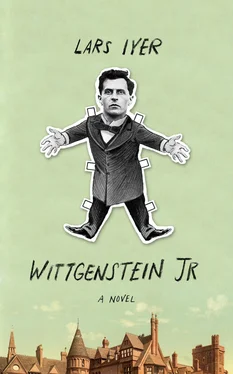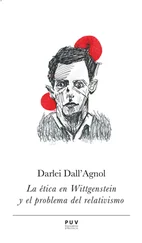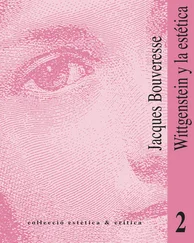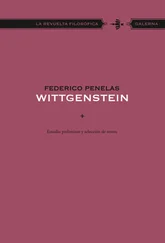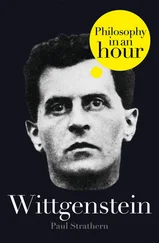He speaks of the Cambridgean void . Of the Cambridgean nothingness . He speaks of the Cambridgean emptying-out . Of the Cambridgean hollowing .
He speaks of eroded hours and emptied-out days . He speaks of time void of time —of minutes, of seconds. Nothing is happening, not in Cambridge, he says. Nothing is happening — rubble is piling upon rubble, and that is all.
Cambridge is a shore , he says. A shore, waiting for a sea. When will the sea crash in and reclaim the Fens? When will the flood come that will drown Cambridge?
8th December
Carollers in the courtyard. The vast Christmas tree — a present from Norwegian alumni.
The Hasidim say that everything in the world to come will be almost as it is in this world, Wittgenstein says. Just as the Christmas tree is now, so will it be then. Where the carollers sing now, so they will sing then. The gloves and hat we wear in this world, those we will wear then. Everything will be as it is now, only a little different …
A package for him at the porters’ lodge. He picks up a package. It’s from his aunt, he says.
Stollen and sparkling wine in his rooms.
Wittgenstein, in buoyant mood. He speaks of his childhood. Of his parents. His brother. He speaks of the mountains. Of long horseback rides through the valleys.
He lost his faith early on, he says — or what is usually called faith. He remembers a school trip, when he was still very young. It was dark, and they were walking back home through a forest. Some of the other children were frightened, and began to cry. You must think about God very hard , the teacher said.
A few years later, he remembers wanting to fall on his knees, Wittgenstein says. There was a tiny church halfway up a mountain. Very simple, very beautiful. He wanted to pray, but he couldn’t pray. He wanted to weep, but he couldn’t do that, either. If he’d started to weep, he’d never have stopped, he says. He has the same feeling today.
There was a fairy story his mother used to tell them, he says. A wicked witch placed a splinter of ice in the heart of a boy. The boy forgot his parents and his name. He forgot the land of his birth. The witch carried him to her ice palace in the far north, and gave him a puzzle of ice shards to play with.
But the boy had a brother, who had not forgotten him. The brother found the ice palace, and the blue-lipped boy, lost in his puzzle. The brother embraced the boy, and the boy wept, without knowing why. And that is when the splinter of ice in his heart melted. That’s when he remembered who he was. That’s when he remembered his brother and his parents and the land of his birth …
God is a name for tears — fresh tears , Wittgenstein says. God is a name for the act of weeping …
Is it only by weeping, really weeping, that he will drive the splinter of philosophy from his heart? he wonders.
9th December
We walk through the snow, to the American cemetery.
Be ye also ready , on one headstone. Seek me and ye shall live , on another. Bound together by His love , on a third.
Some cemeteries have no headstones, he says. Only a single churchyard cross, to mark the resting places of the dead. He finds that moving, he says — relinquishing your worldly name as monks do when they take the names of their saintly forebears.
He and his brother used to pass St Mary’s monastery, near their home. They used to watch the monks working together — digging in the garden and pruning fruit trees. Once, they saw them singing vespers in the fields. How he envied them!
Spiritual poverty! he says. To renounce possession of your own soul, your own will. To be poor, but to have God as your fortune …
Perhaps the secret of life is not hidden, he says. Perhaps the secret of life is to work with others. Alongside others. To work in the fields, in the open air. The simple round of prayer and labour and reading … Day after day … Like a waterwheel in the river of eternity.
He attended services a few times, he says. So early, the stone vaulting was lost in shadows. Monks were scarcely visible in the gloom. And then dawn came, he says … the first rays shining into the apse. Hope! Living hope! Prefiguring the return of Christ.
He dreams of building his life again from rituals, he says. Of remaking his life, action by action. Of beginning again, simply. Of concentrating on small things. On ordinary things.
10th December
He texts me: come. — Coming .
His door is slightly ajar.
He sits on his chair, head back, eyes half closed. Is he working on something? A philosophical problem? A moral problem? Has he fallen asleep?
WITTGENSTEIN (imperatively, his eyes still closed): Peters — take dictation. (Without pausing:) The rule must be a thread in the weave of life. The rule must become the exception, and the exception, the rule. (A pause.) Are you getting all this?
He speaks, I write. He doesn’t open his eyes until lunchtime.
Afternoon. He serves coffee and cream, with biscuits. He’s in a good mood after the day’s work.
WITTGENSTEIN: You mustn’t think I’m taking you for granted, Peters. (A pause.) I may be a wicked person (ME: You’re not!), but I have always been a collector of good people.
ME: I’ve always thought you’d find me stupid.
WITTGENSTEIN: You, Peters, are anything but stupid.
How tired he is of Cambridge cleverness! he says. He would prefer an honest stupidity — a bright stupidity, on which light shines from above.
• • •
The Maypole , almost empty.
A student at the next table tries to engage us in conversation. Something about Library Whispers. About the May Ball. At last, he leaves.
WITTGENSTEIN: Why did you talk to that fellow, Peters? He was a fool. (A pause.) You should tender yourself more dearly.
An influx of thesps, after some event at the ADC. Foppish cherubs with classical curls; shabby-posh Withnails in worn-shiny velvet; would-be Footlighters in comedy onesies.
Wittgenstein blanches. There is something despicable about theatre, he says.
Still more students. Comprehensive-school types, visibly unhealthy. Indie kids, with pipe-cleaner legs. Empiricist boys, with ruler-straight fringes. Big brainy girls, with glasses and headbands.
WITTGENSTEIN: Socrates’s greatness was that he could talk with ordinary people, and consider such talk worthwhile. My greatness should be that I can spend an evening in the Maypole and find that evening worthwhile.
He stands. Puts on his coat.
WITTGENSTEIN: I am not great, Peters.
11th December
Busy , he texts.
12th December
Towards the Backs.
Frozen grass. An ice-covered slide. The words fuck and piss , written into the snow.
He went to the college Christmas party last night, he says. It was worse than he feared.
The head of the college, circulating. Her husband, circulating. Their grown-up children, circulating. Guests, circulating, circulating, circulating.
It used to be all Cambridge stuffiness , he says. All Cambridge snobbery . But it’s all friendliness now, he says. All openness and affability . All first names . As though everyone were mates .
The buildings of Cambridge Riverside. A clutter of balconies. High, blank windows.
He wants an enemy, he says. A betrayer. One to bring the wrath of the university upon him. A Judas, to bring the anger of the dons upon his head.
He wants a reckoning , he says. Him versus Cambridge. He wants to draw Cambridge out . To be seen to sin against Cambridge. To have transgressed Cambridge. He wants a sense that there are limits. That there are things which are intolerable.
Читать дальше
